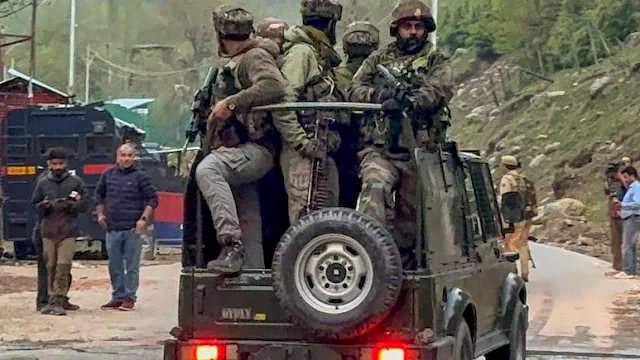The brutal massacre of innocent tourists in Pahalgam is a heinous act that deserves unequivocal condemnation. But our response must not stop at outrage or public mourning. This incident, like many others in the past, is part of a broader agenda that seeks to disrupt India's social cohesion and exploit its political fault lines.
Terrorist attacks in Jammu and Kashmir are not isolated or spontaneous. They are calculated moves with cross-border backing, particularly from Pakistan’s military establishment and religious-political outfits that thrive on extremism. For them, terrorism is not only a geopolitical tool but also a lucrative enterprise — one that thrives on collecting chanda (donations) in the name of religion and jihad.
It’s crucial that we don’t allow our domestic politics to be dictated by such provocations. The idea of a composite and united India has always been unsettling for those who justified the partition of the subcontinent under religious pretexts. These groups and their sponsors view any semblance of normalcy in Kashmir — particularly the rise of tourism and local enterprise — as a threat to their ideological narrative.
In recent years, Kashmir had been moving towards a return to peace. Tourists from across the country had started visiting again, and businesses were beginning to bloom. This recovery directly undermines the propaganda of those who scream “Islam khatre mein hai” (Islam is in danger) and push young people into a false war in the name of religion.
That’s why the BJP and its leadership must tread carefully. A call for unity must not become a political slogan — it must be practiced with sincerity. This is not the time for rhetoric or blame games. The attack in Pahalgam is not just another incident to score political points or consolidate vote banks. It is a direct assault on India’s democratic and secular fabric by Pakistan-sponsored terror outfits.
Appeasing extremist sentiments or whipping up communal anger in response will only play into the terrorists’ hands. This is not a Hindu-Muslim issue; it is a national security issue. India must isolate and eliminate these terror networks, but with smart diplomacy, intelligence collaboration, and internal political stability — not with polarizing statements or divisive politics.
Equally important is resisting calls for blanket measures like President’s Rule in Jammu and Kashmir. Such reactions, however well-intentioned, feed into Pakistan’s propaganda machine which paints India as an occupier of Kashmiri lands. A democratically elected, functional local government is the best counter to such narratives. Stability in Kashmir is precisely what the terrorists do not want — because it dissolves the very premise of their existence.
At this difficult time, our thoughts and deepest condolences go out to the families of the innocent lives lost in Pahalgam. Their deaths must not be in vain. As a nation, we must stay united and vigilant, and reject both terrorism and the politics of hatred.
Let us reaffirm our commitment to a peaceful, inclusive, and democratic India — because that, above all, is the biggest defeat we can hand to those who want to divide us.
---
*Human rights defender


Comments